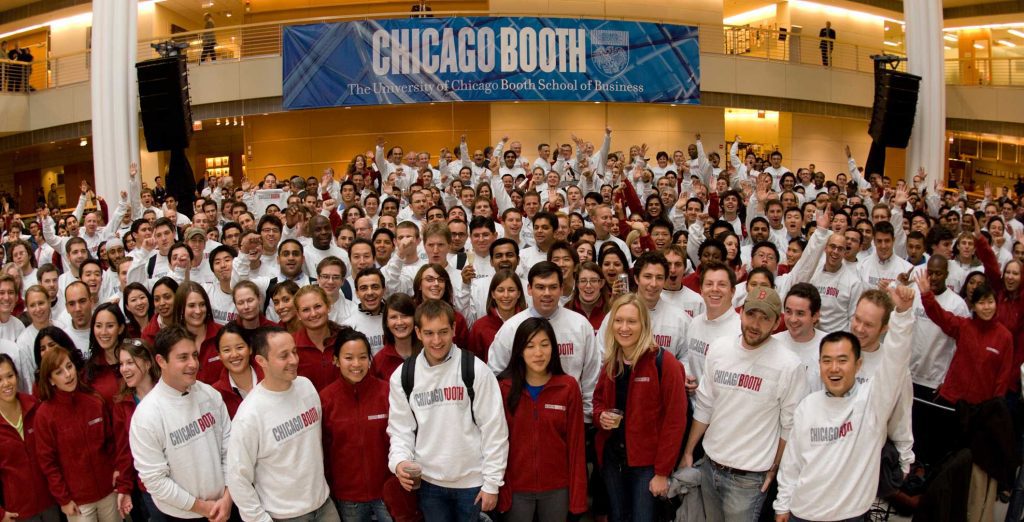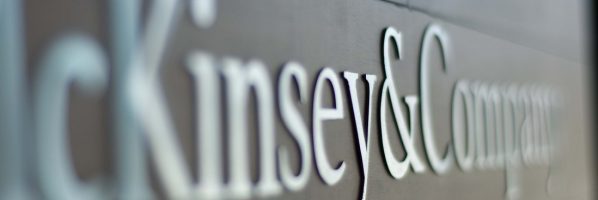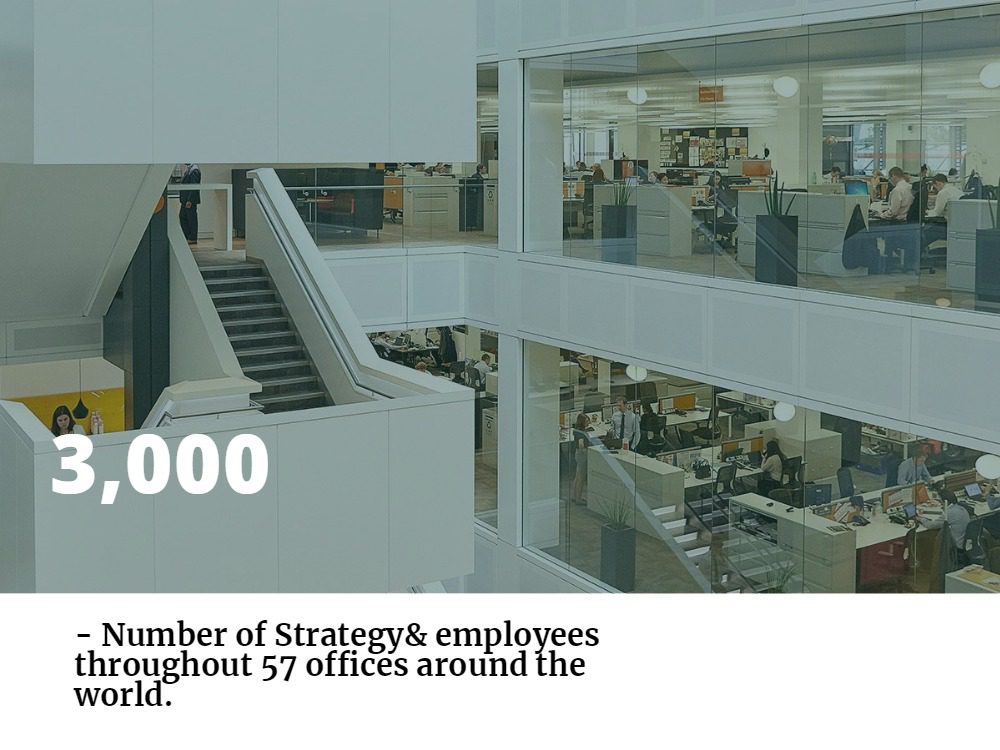What They’re Saying: Business Schools Talk About Cambridge Analytica

Less than a week after Christopher Wylie, the whistle-blower in the ongoing Cambridge Analytica controversy, helped reveal the “dirty tricks” the data mining firm used to help swing elections in North America, Europe, and Africa—including the 2016 U.S. general election—business schools are reacting to the dynamic story.
In short, UK television outlet Channel 4 News filmed several Cambridge Analytica members in an undercover operation, in which they revealed numerous strategies, including: soliciting fake bribes, hiring prostitutes to seduce potential candidates in elections, and more. Company chief executive Alexander Nix was also filmed in the video, which you can watch here, boasted the company’s outreach methods on social media, saying: “It sounds a dreadful thing to say, but these are things that don’t necessarily need to be true as long as they’re believed.”
Another member of the Cambridge Analytica team also argued that they constructed President Donald Trump’s popular “crooked Hillary” campaign slogan from 2016.
Further, the controversy revealed how the company pilfered upwards of “50 million” Facebook profiles, most of which came without consent. Facebook and its founder Mark Zuckerberg played silent on the ongoing story up until March 21, plainly saying in a CNN interview “I’m really sorry that this happened.”
“Aleksandr Kogan, the data scientist who passed along data to SCL Group and its affiliate Cambridge Analytica, built a Facebook app that drew data from users and their friends in 2013. He was allowed access to a broad range of data at the time.
Though Kogan’s data was properly obtained, he breached Facebook’s policy when he shared that information with a third party, Facebook has said. When Facebook learned about the information being shared, it asked Cambridge Analytica to destroy the data. Cambridge said it had.”
Wylie notes that Cambridge Analytica probably never destroyed that data, inevitably leading towards the company’s involvement in the 2016 election. Several of the nation’s most prominent business schools talked about the story on Twitter, which you can read below.
André Spicer, Professor of Organisational Behaviour, on Cambridge Analytica and the possibility of tech companies being forced to expand regulations on privacy and social responsibility.
Read André’s comments: https://t.co/O5IAlUTD5t#cambridgeanalytica#cassbusinessschoolpic.twitter.com/GWv95RUIMc
— Cass Business School (@cassbusiness) March 21, 2018
“The really big issue is if regulators start questioning the business model of tech firms. Currently, consumers give away their data in exchange for free services, but what if regulators start putting a price on people’s data?” –
Cass Business Professor André Spicer
Q&A with @cyberlawclinic‘s @vivekdotca about Facebook and Cambridge Analytica, U.S. privacy protections, and the regulation of the tech industry https://t.co/LPKwwSKSXw
— Harvard University (@Harvard) March 22, 2018
The head of the European Parliament announced on Monday that the EU will investigate whether the data of more than 50 million Facebook users were misused when it was accessed by Cambridge Analytica! https://t.co/q946Hed417
— FOX MBA & MS (@FoxMBA) March 22, 2018
Cambridge Analytica said it’s suspending its CEO immediately and is launching an independent investigation into allegations it misused data on millions of Facebook users. https://t.co/EKeXiuHeQF
— MIT Tech Review (@techreview) March 21, 2018
Chicago Booth, Michigan Rise in New U.S. News Business School Ranking

The new, official U.S. News & World Report ranking of the best business schools in the United States has been released, with some minor shake-ups at the top. For the second year in a row, Harvard Business School remains tied for the first overall in the ranking. However, the University of Chicago Booth School of Business officially supplanted The Wharton School at the University of Pennsylvania, which fell back from its tie at the top to third overall.
The rest of the top ten, as we previously mentioned, largely resembled last year’s U.S. News release, except for the inclusion of the Ross School of Business at the University of Michigan and the exclusion of the Yale School of Management. Surprisingly, Michigan Ross may have made the strongest showing in the newest ranking, not only managing a position in the top 10, but landing tied for seventh overall—ahead of Columbia Business School and the Dartmouth Tuck School of Business. The Yale School of Management slipped to a tie at 11th overall with Duke University’s Fuqua School of Business.
U.S. News & World Report 2019 Best Business School Rankings
| Rank | School |
|---|---|
| 1st (Tied) | Harvard Business School |
| 1st (Tied) | University of Chicago Booth School of Business |
| 3rd | The Wharton School at the University of Pennsylvania |
| 4th | Stanford GSB |
| 5th | MIT Sloan School of Management |
| 6th | Northwestern University Kellogg School of Management |
| 7th (Tied) | University of Michigan Stephen M. Ross Business School |
| 7th (Tied) | UC Berkeley Haas School of Business |
| 9th | Columbia Business School |
| 10th | Dartmouth College Tuck School of Business |
Chicago Booth, Michigan Shine Among Rising Full-Time MBA Programs

For the first time in school history, the Booth School of Business secured its place atop of the U.S. News ranking (albeit tied with HBS). In a statement, Booth Dean Madhav Rajan noted, “We are pleased to be recognized in this manner, and gratified that the recognition is across the board. We continue to strive to be the pre-eminent academic school of business.”
After its place among the top ten business schools was revealed, Michigan Ross Dean of Business Scott DeRue stated in a release, “We are excited to once again be ranked among the top 10 MBA programs in the country by U.S. News & World Report. This recognition is a testament to the extraordinary talent at Michigan Ross, our innovations in action-based learning, our partnerships with leading companies across the globe, and the most supportive alumni community in the world. We are developing leaders who have the character and capabilities to transform the world through business, and it’s an honor to be recognized among the very best in the world.”
On its website, the school also proudly boasted that, outside of Stanford GSB, no business school in the ranking earned more top ten placements in specialty areas, earning high grades for: “Accounting (No. 4), Entrepreneurship (No. 7), Finance (No. 10), International (No. 5), Management (No. 3), Marketing (No. 4), Non-Profit (No. 5), Productions/Operations (No. 3), and Supply Chain (No. 6).”
Outside of the top ten, the USC Marshall School of Business watched its stock rise again this year. Two years ago, U.S. News handed USC Marshall the 31st spot on its best business school ranking, which jumped to 24th last year, and 20th this year. Just a few spots back of USC was the Jones Graduate School of Business at Rice University, which saw the largest leap of any of the top 25 schools—jumping six spots from the previous year.
Nine schools among the top 100 in the new rankings managed to jump at least ten spots, including three MetroMBA favorites: the Whitman School of Management at Syracuse University, the Neeley School of Business at TCU, and the Fordham School of Business at Fordham University. Whitman, in fact, tied for second highest rise, improving 18 spots overall from last year’s 88th overall placement to 70th this year. No school improved more, however, than the Weatherhead School of Management at Case Western Reserve University in Cleveland, Ohio, which improved a remarkable 22 spots from last year’s 77th overall placement to 55th this year.

The Syracuse University Whitman School of Management jumped 18 spots in the most recent U.S. News “Best Business Schools” ranking.
A handful of schools also secured a spot in the top 100 after not appearing at all the previous year, including the Howard University School of Business, the American University Kogod School of Business, and Argyros School of Business and Economics at Chapman University.
Which Schools Fell The Hardest?
Along with the Yale School of Management losing its prestigious top ten status, a handful of schools tumbled in the 2019 ranking—with some virtually flat-lining. No school fell more than the Poole College of Management at North Carolina State University, slipping an astounding 35 spots from 55th last year to 92nd this year. Eleven schools lost their top 100 status in total. The reasoning behind the sudden drops are likely linked to the publication’s change in how it ranks the business schools.
In regards to the ranking methodology, U.S. News placed less value in test scores and student GPA. In a release this afternoon, U.S. News reported the following:
“For the first time U.S. News reduced the value of reported GPA, GRE and GMAT scores for full-time and part-time MBA programs and GRE scores in the education rankings if less than 50 percent of an entering class submitted these scores. U.S. News believes this lack of data means the scores are not representative of the entire class.”
The change, arguably, could stem from the fallout of the Temple University Fox School of Business, which was knocked off all of the publication’s rankings for the 2018 calendar year because of falsely reported data regarding test scores.
Stay tuned to MetroMBA on all the biggest MBA ranking news.
The Best Business Schools for Landing Top Consulting Jobs

Clear Admit recently explored which business schools help prepare MBAs the most for a career in consulting, which you can read below.
With starting salaries in the $140,000 to $150,000 range and a customary $25,000 signing bonus on top of that, it’s no wonder so many business school students target the prestige consulting firms known as the “MBB”—McKinsey & Company, Boston Consulting Group (BCG), and Bain & Company—as their post-MBA landing pads. That $170,000+ annual compensation package can quickly cut any MBA loan debt you may have taken on down to size.
Indeed, management consulting has been one of the most coveted career paths for fresh MBA grads for ages. And though the technology industry has in recent years been stealing some grads from the consulting industry’s traditional slice of the pie, the most recent MBA employment reports reveal that consulting is already making a comeback against tech at certain schools.
The opportunity to work with a range of clients comprised of many of the world’s most celebrated businesses across industries—tech included—is part of the appeal of consulting. In many ways, a top consulting gig allows MBA grads to continue their management education while getting paid for it—and further honing their skills and expertise by helping solve a wide variety of business challenges. And, not for nothing, breaking into the MBB is a highly competitive pursuit—one that almost assures that your colleagues will be smart, driven people you’ll get a lot out of working with.
Finally, where the top consulting firms are choosing to find their talent reflects on the quality of the education those schools’ students are getting. In many ways, the hiring practices of the MBB can serve as a gold star standard of sorts for MBA programs.
Elite Firms Hire Grads from Elite Business Schools
The crème de la crème of leading business school talent has headed toward the top consulting firms for decades—and performed well there—creating a virtuous circle of sorts in which the firms’ appetite for such talent only grows. And while this piece focuses on MBB, we should note that a host of other consulting firms—Deloitte, A.T. Kearney, Accenture, Strategy&, and Oliver Wyman among others—are also highly prized post-MBA destinations.
If you are looking to see which business schools send the greatest percentage of their graduates into consulting overall, don’t miss our September 2017 analysis of leading consulting industry feeder schools. Which schools top the list? And what stands out about how these schools successfully train students for careers in consulting?
Looking at Class of 2016 graduates, the University of Virginia’s Darden School led the pack, with 38 percent of its graduates heading into consulting. Columbia Business School was next, sending 35 percent, followed closely by Northwestern University’s Kellogg School of Management, which sent 33 percent.
The 2017 employment reports, which have been released since our analysis last fall, show some shifts year over year. Darden tied with Emory’s Goizueta School of Business in terms of the percentage of Class of 2017 grads who headed into consulting, with each school sending 34 percent. Close on their heels were Columbia, Duke’s Fuqua School of Business, Northwestern’s Kellogg School of Management, and Dartmouth’s Tuck School. All four sent 33 percent of their most recent graduating class off to consulting firms.
2 Non-U.S. Schools Lead All Others in Consulting-Bound ’17 MBA Grads
But year after year, one thing remains the same. INSEAD, with campuses in France, Singapore, and Abu Dhabi, beats all leading U.S. business schools when it comes to consulting. INSEAD’s 2016 MBA employment report, detailing employment outcomes for December 2015 and July 2016 INSEAD grads, shows that 46 percent went into consulting. And the most recent figures reveal that almost a full half—49 percent—of the 1,029 students who completed the INSEAD MBA program in December 2016 and July 2017 chose to either enter or return to the consulting field.

We should note here that INSEAD is distinct from many other schools in that it includes sponsored students who are returning to their pre-MBA employers among its hiring stats. This is in contrast to many U.S. schools, where the reported number and percentage of students hired by sector and employer corresponds to those students actively seeking employment, excluding sponsored students. Of the 49 percent of INSEAD 2017 grads headed into consulting, 33 percent were new hires and the remaining 16 percent were returnees.
London Business School (LBS) was the runner-up for the Class of 2017, sending 41 percent of grads into consulting. This was a 6 percentage-point gain over the school’s previous class of MBA graduates. Like INSEAD, LBS’s reported sector designation and top employer information includes sponsored students, only its employment report does not disclose what percentage of the class those returning students represent.
Harvard Black Business Leaders Series Celebrates Black History Month

To commemorate Black History Month, Harvard Business School presented a series of cases, courses, and podcasts highlighting influential black business leaders. Within its MBA curriculum, HBS has also been working to increase the representation of compelling African-American protagonists culled from a wide range of industries in the case studies at the heart of its distinctive case study method.
Senior Lecturer Steven Rogers (no not that one), who teaches the course “Black Business Leaders and Entrepreneurship,” was one of the catalysts for this initiative. Rogers uses his course as an opportunity to honor the unsung impact that many African-American business leaders have had on the way America does business. As part of the Black Business Leaders Series of podcasts, Rogers interviews living African-American leaders about the dizzying highs and devastating lows of doing business.
John Rogers Podcast
One such interview features Ariel Investments Founder, Chairman, and CEO John Rogers (no relation), whose financial management firm handles about $13.1 billion. Ariel currently has 90 employees and considers itself a miniature version of Fidelity. “John Rogers is one of America’s great entrepreneurs,” says Steven Rogers by way of introduction. “In the words of Warren Buffett, he is one of the greatest investors of our time.”
The podcast delves into John’s vocal criticism of diversity in Fortune 500 companies and how his comments got him in trouble with his board. It also discusses such topics as a severe lack of inclusion present in the financial management industry. It’s a problem that impacts the entire sector, from job creation to community health.
“When African-American–owned companies are allowed to prosper and grow, we see the creation of more jobs,” Steven Rogers explained in the podcast. “When people have jobs, they’re self-sufficient. When people are self-sufficient, they live in healthy communities. That’s exactly what happens when diversity and inclusion is actualized and people like John are given a chance to grow their companies.”
To listen to the full podcast visit the school website.
Black Business Leaders Series Highlights
Don’t miss these other great podcasts in the HBS Black Business Leaders series:
- A discussion of Ebony Magazine, which for more than seven decades has chronicled the most important African-American issues and interests of the time.
- An interview with Senior Lecturer Henry Q. McGee on the topic of “The Black List” in Hollywood.
- An in-depth look at the legacy of Maggie Lena Walker and the Independent Order of St. Luke.
To access the complete Black Business Leaders Series, visit the HBS Newsroom.
This article has been edited and republished with permissions from our sister site, Clear Admit.
School v. School: Harvard Business School or MIT Sloan?

When selecting an MBA program, it can be difficult to cut through the fog to make the best long-term decision. For elite schools, the veil of prestige casts a long shadow. For lesser-known schools, it’s often a question of how much bang you’re getting for your buck. Allow our School v. School series to do the heavy lifting for you and present an in-depth comparison. Let’s consider the distinctions between Boston’s best: Harvard Business School and MIT Sloan.
Harvard Business School
Located in the Allston neighborhood of Boston, Harvard Business School’s 40-acre campus is “the only top business school in the United States with a self-contained, residential campus,” steps away from the downtown area of the city. HBS is famously one of the first MBA programs in the world. It also boasts one of the largest total student populations, with a grand total of 1,871 enrolled students.
HBS Full-Time MBA
For many, HBS is the crème de la crème of MBA programs. U.S. News and World Report ranks it as the best in the country. HBS offers only one type of MBA degree: full-time. The program lasts a typical two years, with the first summer break reserved for an internship or internships. Due to the large student body, incoming students are divided into groups of 90 who will take the same coursework for a year’s time. Each segment represents the diversity of the incoming class.
Why HBS?
- The FIELD Foundations program (Field Immersion Experience for Leadership Development) helps students develop an awareness of their leadership styles by interacting with their “team” through intimate workshops. The program, which intends to build emotional intelligence, is unique for its personalized approach to business training.
- The Case Method was first established as the primary method of instruction at HBS, and many students cite it as a highlight of their time at HBS. The Case Method puts students in the position of the decision makers by presenting scenarios written by HBS staff themselves.
- HBS offers six joint degree options for students looking to expand into additional fields, such as law, medicine, and engineering.
- HBS routinely tops MIT when it comes to domestic and global MBA rankings.
Harvard vs. MIT MBA Rankings
| Harvard Business School | MIT Sloan School of Management | |
|---|---|---|
| U.S. News & World Report (U.S.) | 1 | 4 |
| The Economist (Global) | 3 | 19 |
| Financial Times (Global) | 5 | 9 |
| Forbes (U.S.) | 3 | 8 |
| Bloomberg Businessweek (U.S.) | 1 | 3 |
What Is Missing?
- There’s a hefty price tag for a HBS education: estimated at $106,800 annually, including tuition, room and board, materials, and healthcare.
- Outside of the U.Ss, starting salaries for international positions tend to be lower, despite Harvard’s reputation in the States.
- Harvard’s employment rate after graduation trails slightly behind MIT: 91 percent vs. MIT’s 93 percent.
- Out of 273 faculty members at HBS, only 70 are women; about 25 percent.
MIT Sloan School of Management
Situated in nearby Cambridge, the Sloan School of Management campus is “surrounded by biotech companies, tech giants, startups, and research labs.” MIT Sloan has a compact center for its MBA students, which revolves around a newly built facility called E62. Here, you’ll find the entire faculty and most academic programs. Its population of full-time MBA students hovers around 800, while 500 additional students are completing alternative post-baccalaureate business degrees.
Sloan School of Management Programs
Unlike HBS, MIT Sloan offers three kinds of MBA programs: the two-year, full-time MBA degree; 20-month Executive degree; and 12-month Sloan Fellows Program. The full-time MBA degree stands out for its Sloan Innovation Period (SIP), a full-immersion learning experience that occurs in the middle of each semester. Students take a week-long hiatus from classes to attend lectures, travel abroad, visit host companies, and more.
Why Sloan?
- The Global Entrepreneurship Lab is one opportunity that MBA students shouldn’t miss. Students act as advisors for start-up companies in markets around the world, delivering insight on topics such as “strategic growth, new market entry, pricing, marketing, benchmarking, fundraising, and financial strategy.”
- The Leaders for Global Operations caters to students interested in a dual degree in Engineering and Business. This two-year curriculum “places students in research internships at elite partner companies.”
- Sloan’s MBA class is made up of a larger international student base compared to Harvard; 39 percent, as opposed to 35 percent at HBS. This isn’t a significant gap, but it does show MIT’s commitment to diversity.
What Is Missing?
- According to Forbes, Sloan has a lower median base salary after graduation at $125,000. HBS grads average around $135,000.
- Unlike the HBS environment, not all students on campus are earning full-time MBA degrees. If you’re someone who enjoys working with the same student body throughout your degree, prepare for a bit more cross-section here.
- The current tuition and full cost for the MIT Sloan MBA is slightly higher than HBS (regarding non-married single students with no children).
Harvard vs. MIT MBA Cost
| Harvard Business School | MIT Sloan School of Management | |
|---|---|---|
| Tuition | $73,440 | $74,200 |
| Full-Cost | $109,124 | $111,570 |
When all is said and done, both MBAs are extremely cutting-edge programs that any ambitious prospective b-schooler would salivate over. Both Harvard and MIT offer a similar urban setting, as they exist in the same tightly packed university community in Boston. Additionally, both have the same acceptance rate (11 percent). For a final push, be sure to read up on faculty leading the way both at Harvard and MIT.
Top MBA Recruiters: Finding Your MBA Career at PwC Firm Strategy&

Navigating job applications and interviews after all the hard work of earning your MBA can be tiresome. After devoting a year or more of your time to gaining the skills of a top business professional, shouldn’t future companies be knocking down your door?
It might not be that easy, but there are certainly a number of companies currently seeking the best and the brightest up-and-coming business leaders, who acknowledge the kind of skills an MBA can contribute to their team. Among them is Strategy&, one of the top recruiters of MBA students at business schools throughout the world.
For MBA graduates looking for careers in the consulting industry, Strategy& could be the perfect opportunity to break into the field and develop critical skills in strategy and consulting. And as an MBA graduate with a wealth of knowledge within the industry, companies like Strategy& are probably also looking for you.
About Strategy&
Strategy& was established more than 100 years ago by Edwin G. Booz, eventually being known for most of its life as Booz & Company. In 2014, the firm was acquired by PricewaterhouseCoopers (PwC), when it was renamed to Strategy&. The firm is headquartered in New York City, with more than 57 offices throughout the world. Today, the company features roughly 3,000 employees and more more than $1.3 billion in revenue.
Strategy& functions currently as the strategy consulting team for PwC, offering strategic solutions in an uneven business climate, helping companies to transform, invest in growth, and stay in tune with business trends even through rapidly changing times.

Why MBAs Love Strategy&
Strategy& is an active recruiter from business schools around the world, including top programs like Harvard Business School, NYU Stern, and INSEAD, among many others. The company is also supportive of staff who have not yet earned an MBA but hope to advance their business education. Strategy& even offers junior staff the chance to apply for full MBA sponsorship, and provides flexible work opportunities so students can pursue a degree while still maintaining their career.
The Strategy& consulting experience is shaped in a way that relies on mentorship, with a 1:6 ratio of partners to junior consultants. For MBA students—who have already demonstrated an interest in investing in their growth and education in the field—this type of setting means that class is always in session.
Life at Strategy&
New consultants at Strategy& can expect a clear and structured path laid out at the start of their career, with rapid career progression possible. New associates will advance towards roles as partners, typically spending two to three years at each level along the way.
While undergraduates would begin in associate roles, those with MBA degrees can jump right in at the senior associate level. Senior associates have the opportunity to develop their skills by working closely alongside clients to resolve complex issues and guide clients and their companies towards success. From there, MBAs could move upward into a manager role, then director, and finally partner.
The development of strong mentor relationships is seen as crucial at Strategy&. Mentors will provide a constant source of support for new associates, offering guidance as they move upwards through the company, choosing projects they are passionate about and forming strong professional networks. Mentors will also provide real-time feedback, helping pave the way for a successful career.
Landing a Job at Strategy&
Strategy& is an active recruiter of MBA programs throughout the country, where they may host events on campus and offer direct information to students on applying for positions at the company. Students from any program, even if the school does not actively recruit there, are able to apply directly for their internship and job openings through their website. Jobs are available at a number of the firm’s locations throughout the country and around the globe.
Summer internship opportunities are a great way for students to get their foot in the door at Strategy&, and may end up leading to full time employment. This was the case for Bryan, now a director at the company and based out of Chicago. Bryan interned for the company during the summer while earning his MBA at the University of Chicago Booth School of Business. He completed his MBA in 2011, joined Strategy& as a full-time colleague, and is now a key member of the Technology Strategy team.
“I had the opportunity to do an internship with the firm between my first and second year at business school, and I came away impressed with the caliber and character of the people at the firm,” Bryan said of his experience with Strategy&. “In only nine weeks, the camaraderie and professional bonds that I was able to develop with my teammates, fellow interns and leaders at the firm was special.”
